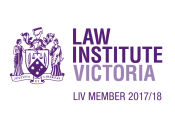.
Know your migration regulations!
–
This case study explores how one client managed to attain their Subclass 482 visa after accidentally giving false information to immigration when they applied for their working holiday visa in Australia.
Many visa applicants struggle to fully grasp how PIC 4020 operates. The provisions are intended to encourage integrity in visa applications. They can be activated even where the provision of misleading information is entirely inadvertent.
PIC 4020 in effect imposes a penalty of sorts on a visa applicant who “gives or causes to be given“:
- (a) information that is false or misleading in a material particular; or
- (b) a bogus document;
in relation to a visa application.
Public Interest Criterion 4020 (“PIC 4020“) is a notoriously difficult part of the Migration Regulations 1994 (Cth).
From Working Holiday Visa Australia to 482 Visa Holder!
Whilst I advise clients of the complexities of PIC 4020 and its stringent nature, there are unfortunately cases which come to us where clients have previously given false information to immigration and are now up the creek without a paddle.
This case involved a client who had arrived in Australia on a working holiday visa. Subsequently, he applied for a 4 year sponsorship visa. He failed to disclose the fact that he had some minor convictions (driving offences and public disorder) in the course of applying for his Australian working holiday visa. Later when we applied for his 482 visa, we disclosed his convictions. The department invited us to comment on the adverse information – namely that the client failed to satisfy PIC 4020 because a visa which he held in the 12 months prior to his current 482 visa was infected by misleading information (the client had stated that he had no criminal convictions when he applied for the working holiday visa, being the visa he held at the time).
We were able to obtain evidence to the effect that the client innocently thought that they were not recorded as convictions as he received cautions and fines only for the offences. We argued the client was never aware of there being a conviction during processing of his working holiday visa application and therefore he could not have disclosed it.
To further strengthen our case, we obtained evidence from the client’s employer about the effect it would have on the business if the client were unable to remain in Australia, and the impact it would have on the employer’s ability to fulfil various contracts. On our advice, the client’s employer was also able to provide evidence of Government contracts to show the need for the visa applicant.
If the outcome was not successful, the client would have a three year ban imposed on all visas for Australia. I am pleased to say that I was able to obtain a successful result for my client.
The result was that the Department granted the client’s Subclass 482 visa. We will never know exactly what helped the client “get across the line”, but I’m glad that we were able to assist the client to obtain a very positive outcome and they were able to continue their life in Australia.

 Points Test
Points Test
 Book Now
Book Now 


